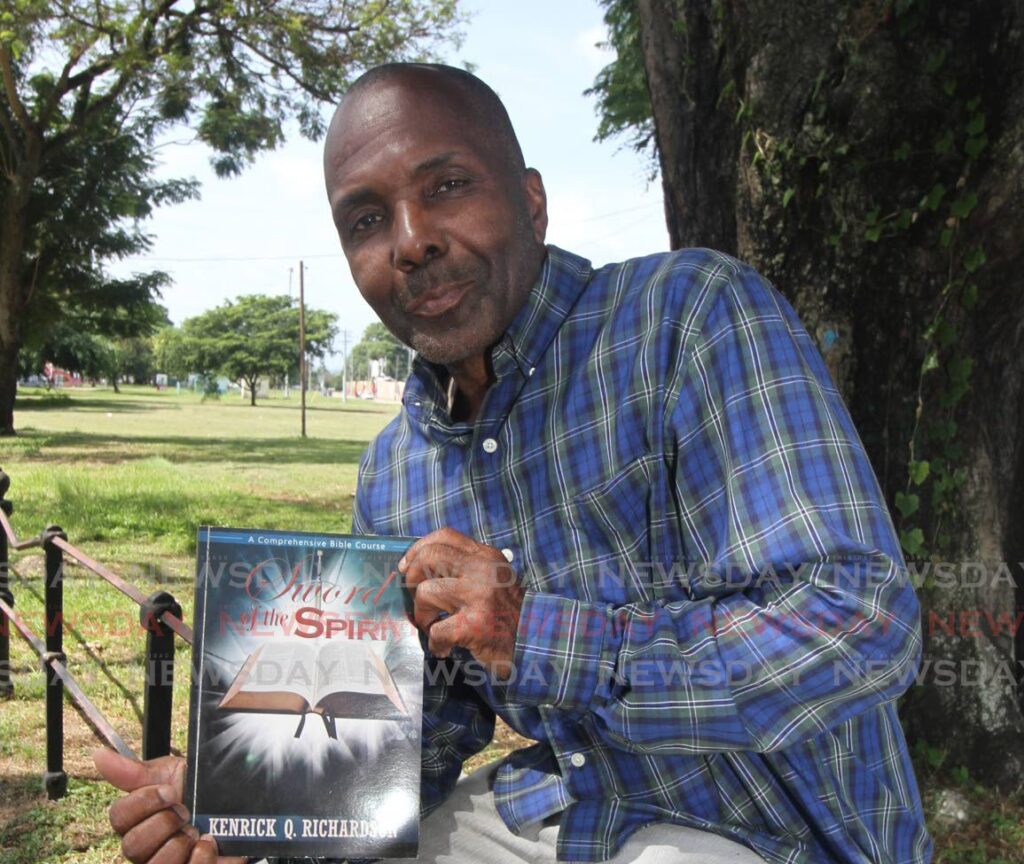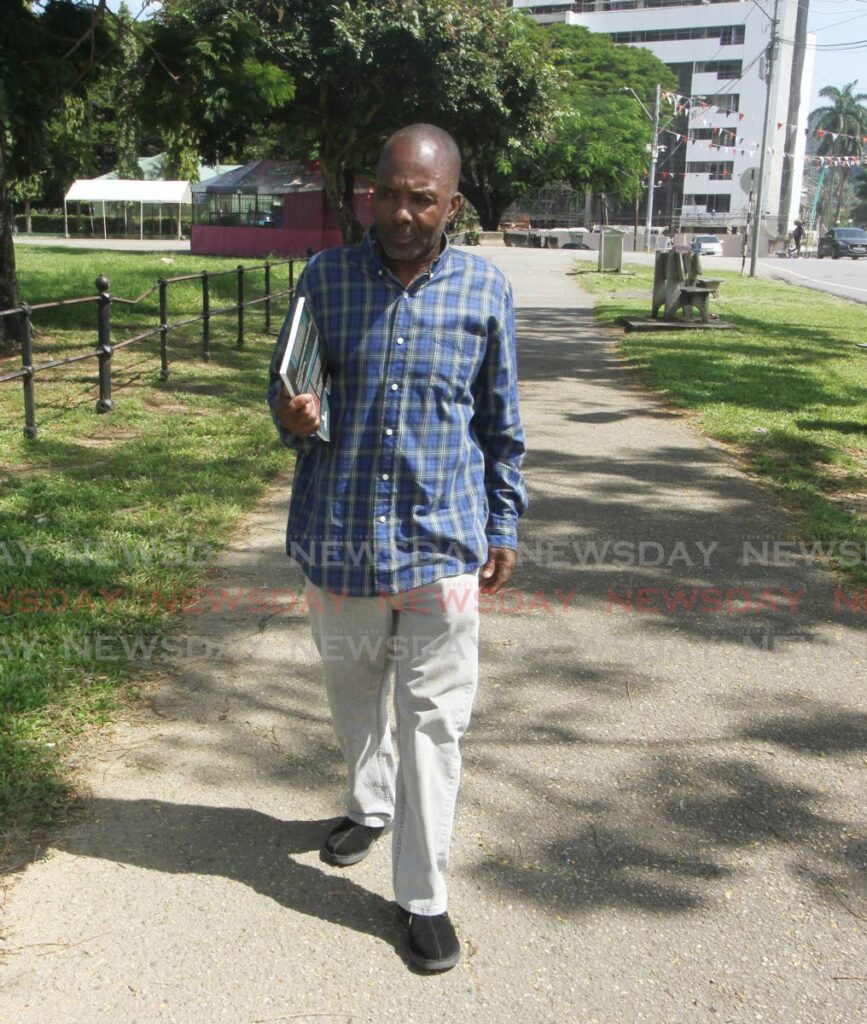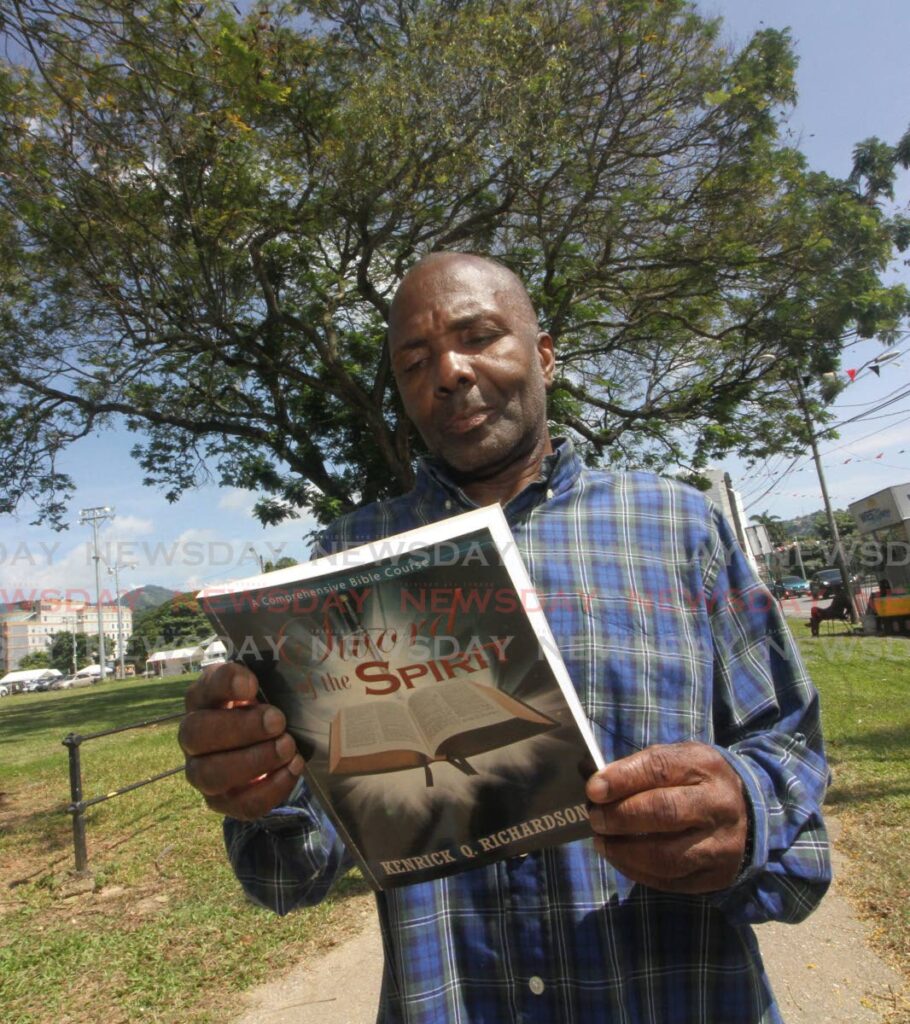US prison changed Kenrick Richardson's life

DEBBIE JACOB
Kenrick Richardson often thinks about his turbulent past and his life of crime.
He has experienced where that lifestyle leads, and he also feels qualified to speak about redemption.
“In my quiet time, I like to think,” said Richardson. “I am sitting in the house I grew up in – my mom’s house in Belmont. I’m looking at her picture now, and everything she said has come to pass.”
Richardson was always a “wayward, resentful person, but not a violent person. I talked a little violence. I hurt people of course, but I was a kind person too. I did violent things, but I have a compassionate heart.”
Richardson credits prison with turning his life around – not prison here, but in the US, where he served time for house break-ins. Of all the opportunities he had in life, the one he says he made the most of was prison.
Born in San Juan, Richardson grew up in Belmont.

“I didn’t have a father, but I am not blaming that for my life in crime,” he said. “My mom had 11 of us. None of them was a vagabond but me. They all made something of their lives. One brother was in the US navy. One worked with American Airlines.
“I didn’t go to school. When I didn’t pass Common Entrance, my mom paid for me to go to a private school, but all I wanted to do was go up in the hills in the back of the house and smoke marijuana with my friends.”
His mother would not give up.
“My mom said, ‘Kenrick, everyone gets up, and walks down the road to do something. They go forward. You go backwards.’
“My mom was a motivator. She loved me, and always said, ‘Kenrick, you have a piece of my heart.’
But, he said, “In the 60s, I rejected everything, because that is what I believed you were supposed to do. I rejected education, but you need the education to understand what people are trying to say.”
Like many single mothers searching for ways to improve their economic means, Richardson’s mother, Thelma, migrated to the US to work, first as a seamstress and then as a geriatric nurse. Eventually, she sent for all her children. Richardson was 25 when he migrated to the US.
“I only went because my mom wanted me up there. It wasn’t my decision.
“When I left, I took Trinidad with me. I didn’t leave Trinidad to change. But they don’t play up there. They have prison for you.”
He arrived in New York City in 1982.
“Within three years, I was out on the street, doing drugs, selling drugs, robbing people. For my first arrest, I was charged with 13 felonies, and I went to trial for all of them.
“My mom said, ‘I know you didn’t do this,’ and of course, I lied and said I didn’t, so as not to disappoint her.”
He served five years in prison, beginning in 1986.
“In prison, I did programmes. I faked it to make it, so to speak.
“I came out, and seven months later I borrowed my mom’s car and went to rob some people. I totalled the car, so they knew for sure it was me.
“Now, with my sentence of three to six years, I got serious in my rehabilitation. I tried to stop using crack cocaine.”
On his release from prison, Richardson thought he had a plan.
“I felt I could leave cocaine and just smoke marijuana – but that led me back to cocaine.”
Arrested for the third time, he returned to prison and joined the Alcohol and Substance Abuse Treatment (ASAT) programme.
“We had a lot of drug programmes in prison. You could always get drugs, but if you were in ASAT you had strict rules to follow in order to stay. It was run by civilians – not correctional officers – and it was a good place to be in prison. I know it really worked. It’s like a prison inside of a prison. You’re protected, and you can get help.”

While in prison he got his GED (equivalent to a high-school diploma) and he wrote two books, Sword of the Spirit, and Trini: the American Deportee.
After he served his last stint in prison and his US permanent residency was revoked, Richardson went to Canada, from where he tried to cross the border into the US illegally three times.
After he was deported for the third time, he returned to Trinidad in 2003 and settled into being a maxi-taxi driver.
“I never for one minute believed I would be here. My mind is still in New York. I love New York. It’s the land of opportunity.
“New York didn’t do anything to me. I did things to New York,” he said.
He says he hasn’t taken any illegal drugs since 1994. He is married, and has a few friends.
“My friends are my wife, and the six dogs I have. My mother was my friend. She passed away three years ago.”
Richardson observes the crime situation in Trinidad and Tobago and tells young people, “You have to stand up on your own two feet. People are right when they say, ‘Friends carry you, but they don’t bring you back.’
“I was such a follower when I was young.”
But, Richardson said, his experiences have made him the person he is today.
“Through my trials and tribulations, I learned patience, perseverance and tolerance.
“I know it’s time to get up and do the work I have to do, which is giving people the knowledge and understanding I have from my experiences in prison and in life.”

Since returning to Trinidad, he has enrolled in several courses and earned certificates from programmes including Caribbean Regional Addictional Studies at UWI. He also participated in an Organisation of American States (OAS)-sponsored training workshop in Recovery and Social Integration Support for Case and Care Management Mentors.
“My miracle in life is that I can read well – even though I never really went to school.”
He says he has read the entire Bible 36 times. He reads the Koran and books that deal with religion and spirituality.
“I’m a seeker of the truth,” he said.
Richardson, now 67, believes prison programmes are essential to solve the crime problem in Trinidad and Tobago.
“There needs to be organised rehabilitation inside the prison system, and a system for good behaviour to get out of prison. When people come out of prison, they need to feel they owe the country time if they do wrong.”
That is what Richardson says worked for him.
“I didn’t change. I just kind of suppressed all of these desires, and I’m striving to be a better person. I’m still striving to get something in life. If a person tries to judge me from yesterday, he’s on the wrong street, because I have crossed the road. I’m on another street now.”
He says, “I try to share my story and speak to some of these guys in the neighbourhood to tell them where they could end up down the road. I just want someone to hear me. I want people to learn.”

Comments
"US prison changed Kenrick Richardson’s life"